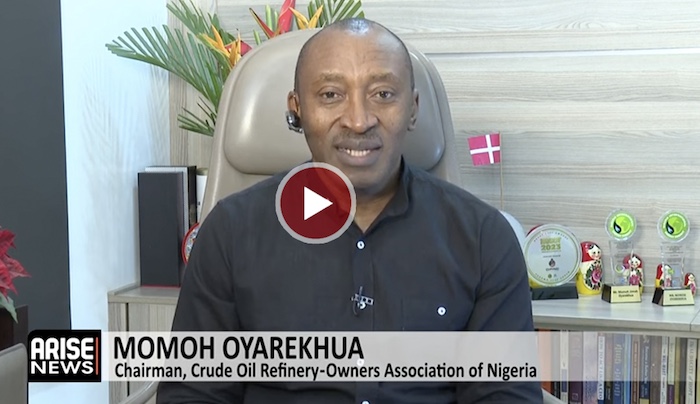Business
Nigeria’s 15% Fuel Import Duty Aims to Strengthen Local Refining

The introduction of a 15% import duty on petrol and diesel, approved by President Bola Tinubu, has garnered support from the Chairman of the Crude Oil Refinery Owners Association of Nigeria (CORAN), Momoh Oyarekhua. He believes this policy will significantly bolster Nigeria’s local refining industry, alleviate pressure on foreign exchange, and create job opportunities.
In an interview with ARISE News, Oyarekhua described the decision as a “successive and strategic move” towards revitalizing the downstream oil sector. He expressed gratitude to President Tinubu for considering the concerns of the refining industry, noting that this import duty follows the recently approved Naira-for-Crude policy, which CORAN has advocated for since 2021. Oyarekhua stated, “These are successive decisions he’s making to enable the refining industry to work in Nigeria.”
The CORAN chairman emphasized that the new duty would help eliminate “unhealthy competition” between local refinery operators and importers of petroleum products, thereby fostering a more conducive environment for domestic refineries to flourish. He added, “We, the crude refinery owners, actually wanted an outright ban on the importation of petroleum products into Nigeria. At our first industry summit last year, we made it clear that Nigeria should become a net exporter of petroleum products.”
Currently, there are five operational private refineries in Nigeria: the Dangote Refinery, OPAK Refinery, Watersmith Refinery, Aradel Refinery, and Edo Refinery. These facilities are already producing and supplying petroleum products to the local market. Oyarekhua pointed out, “We are not waiting for refineries to come on stream; they are already operating. If Nigerians patronise locally refined products, there will be no need for the 15% duty. The levy only applies to imported petroleum products.”
Oyarekhua noted that the emergence of local refineries is beginning to yield economic benefits. He remarked, “Since the Dangote Refinery came on stream, we’ve seen the price of foreign exchange start to come down. This shows the impact of local production.” He highlighted that approximately 45% to 50% of Nigeria’s foreign exchange was previously allocated to fuel imports, but this pressure is now decreasing.
Beyond stabilizing prices, Oyarekhua believes the import duty will stimulate further investment, generate jobs, and enhance energy security, positioning Nigeria as a potential exporter of refined products. He stated, “There are several advantages — local job creation, increased investment, and energy security. If there’s a global crisis and we can’t import, producing locally ensures that Nigerians still have access to fuel. It’s only when we refine locally that we become self-sufficient and even able to export.”
As Nigeria navigates its refining landscape, the implementation of this import duty signals a proactive approach to fostering local production and self-sufficiency in the petroleum sector.
-

 Entertainment2 months ago
Entertainment2 months agoAnn Ming Reflects on ITV’s ‘I Fought the Law’ Drama
-

 Entertainment3 months ago
Entertainment3 months agoKate Garraway Sells £2 Million Home Amid Financial Struggles
-

 Health2 months ago
Health2 months agoKatie Price Faces New Health Concerns After Cancer Symptoms Resurface
-

 Entertainment2 months ago
Entertainment2 months agoCoronation Street’s Carl Webster Faces Trouble with New Affairs
-

 Entertainment2 months ago
Entertainment2 months agoWhere is Tinder Swindler Simon Leviev? Latest Updates Revealed
-

 Entertainment3 months ago
Entertainment3 months agoKim Cattrall Posts Cryptic Message After HBO’s Sequel Cancellation
-

 Entertainment2 months ago
Entertainment2 months agoOlivia Attwood Opens Up About Fallout with Former Best Friend
-

 Entertainment2 months ago
Entertainment2 months agoMasterChef Faces Turmoil as Tom Kerridge Withdraws from Hosting Role
-

 Entertainment3 months ago
Entertainment3 months agoMarkiplier Addresses AI Controversy During Livestream Response
-

 Entertainment4 months ago
Entertainment4 months agoSpeculation Surrounds Home and Away as Cast Departures Mount
-

 World2 months ago
World2 months agoCole Palmer’s Mysterious Message to Kobbie Mainoo Sparks Speculation
-

 Entertainment2 months ago
Entertainment2 months agoITV’s I Fought the Law: Unraveling the True Story Behind the Drama




















